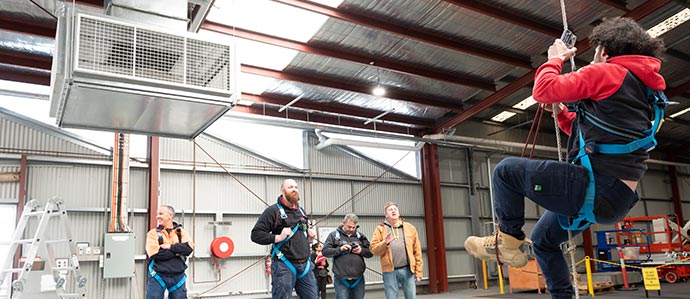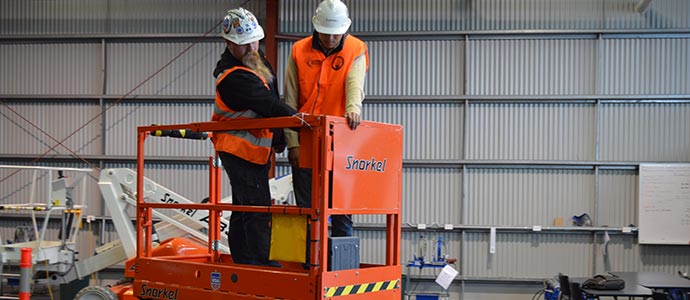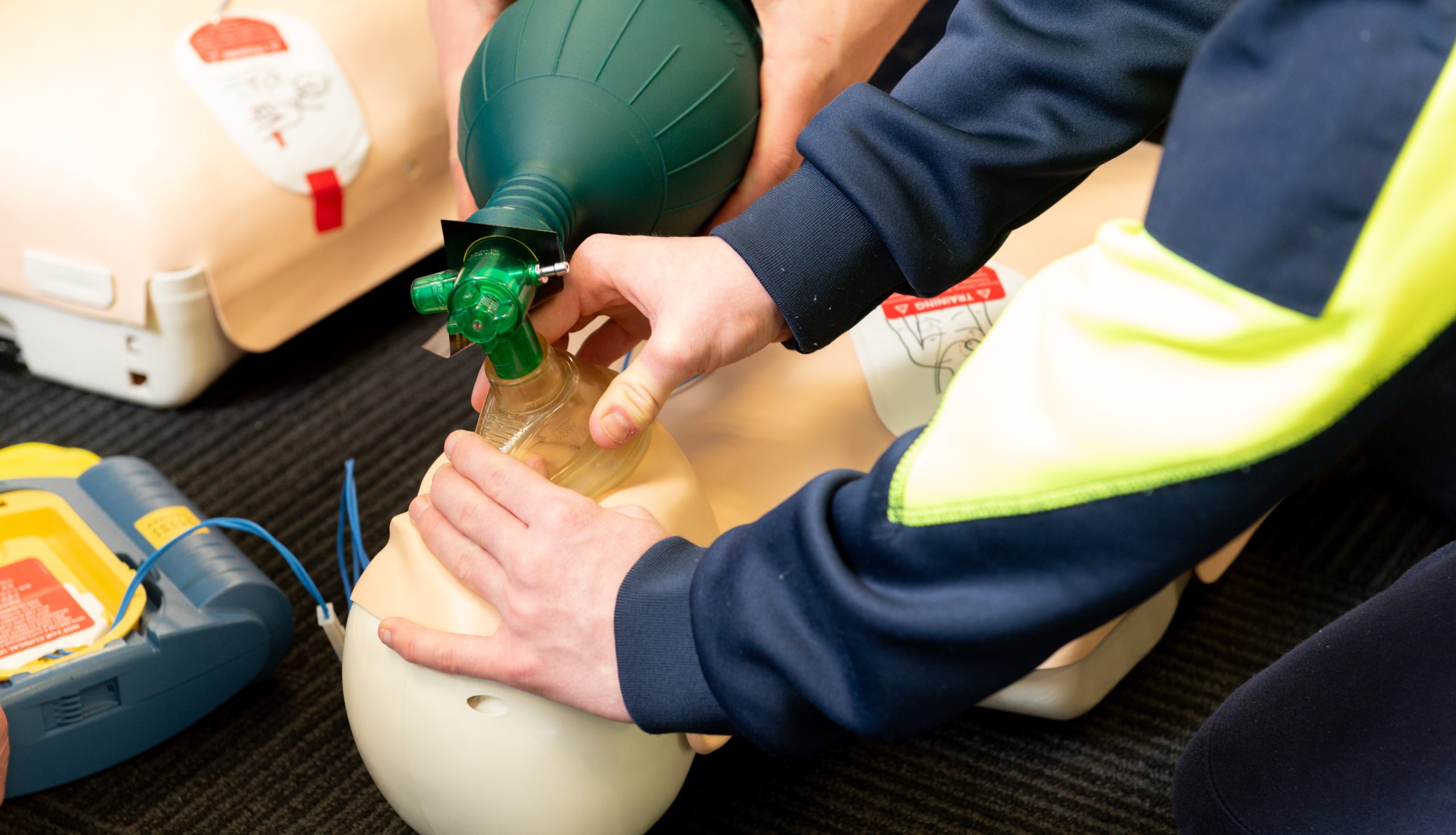
Work Safely at Heights
Work safely at heights prepares learners to assess risk and develop safe work methods for working at height.
RIIHAN301E – Operate Elevating Work Platform

This course prepares learners to safely operate and conduct work activities from an elevating work platform (EWP). You will learn to operate a scissor lift and vertical lift. Note: EWPs under 11m are not classified as requiring a high-risk work (HRW) licence.
This is a nationally accredited qualification that is recognised in all states and territories of Australia.
Students who complete this qualification will gain the skills and knowledge to:
Participants are required to:
There are no prerequisites for this course. No RPL can be applied to this course.
$330 – full fee
$247 – Industry Association Member (NFIA, AMCA)
$0 – PTEU Member
Cancellation fees may apply, please see Learner Information page for terms and conditions.
A range of assessment methods will be used to assess that the learner can:
RIIHAN301E – Operate Elevating Work Platform
Learners who satisfactorily complete all course requirements will be eligible to receive a Statement of Attainment issued by CEPUTEC (RTO 4612), which is recognised nationally under the Australian Qualifications Framework.
Note: Completion of this course will not result in being issued a high-risk work (HRW) licence. The HRW licence applies to operating elevating work platforms with a boom length of 11 metres or more. More information on that qualification can be found here.
Email nsw@ceputec.edu.au or call 1300 222 727 to register your interest in this course.
Read this before you enrol.

Work safely at heights prepares learners to assess risk and develop safe work methods for working at height.

Learn the practical skills and theory required to perform CPR in line with the Australian Resuscitation Council (ARC) guidelines.
If you study any Nationally Recognised Training in Australia, you are required to have a USI. Your USI links to an online account that contains all your training records and results (transcripts) that you have completed since 2015.
When applying for a job or enrolling in further study, you will often need to provide your training records and results (transcript). The benefit of the USI is the ability to provide learners with easy access to their training records at any time.
You can access your USI account online from your computer, tablet or smart phone.
If you do not already have a USI, go to www.usi.gov.au/students/create-your-usi/ on a computer or mobile device
Note: A USI must be supplied to CEPUTEC during enrolment so that a Nationally Recognised Qualification or Statement of Attainment can be issued to you.
For further information, please see the video under Learner Resources.